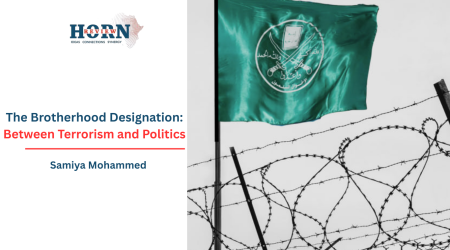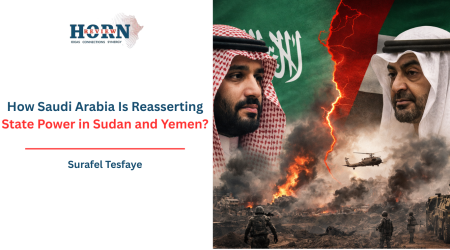
22
Apr
Europe Must Now Deal with Russia by Itself
Europe today faces a security landscape far more volatile than any since the Soviet Union’s collapse in 1991. The continent’s geopolitics are being reshaped by a faltering U.S. alliance, a bolder Russia, and widening cracks within Europe itself.
For decades, Europe’s defence has hinged on its partnership with the United States, primarily through NATO. That foundation is now trembling. President Donald Trump is openly sceptical about NATO’s worth to the US, arguing it serves Europe’s interests more than America’s and pressing European leaders to shoulder more of the burden. His vice president, JD Vance, has been blunter, accusing Europe of “freeloading” on U.S. military might.
Early this year, NATO ministers rebuffed Trump’s push for a 5 percent GDP defence spending target, settling instead for a tweak to the existing 2 percent benchmark. Europe’s apparent inability to meet Trump’s demands (considered to be more due to inability that unwillingness) has increased unease about America’s long-standing guarantees, prompting Europe to consider its rather narrow set of alternatives. Terms like “strategic autonomy”, the idea of Europe defending itself without U.S. support, have gained traction among heads of states like British PM Keir Starmer, alongside calls for deeper EU-NATO collaboration. These debates reflect a growing fear: can Europe still count on its backer across the Atlantic?
As U.S. commitment wavers, Russia has stepped up its game. Moscow’s strategy, rooted in the Primakov doctrine, seeks a world where power is shared among multiple poles, not dominated by Washington or the transatlantic alliance. This means resisting and countering NATO and EU expansion near its borders while forging ties across Asia and beyond.
In February, Presidents Vladimir Putin and Xi Jinping doubled down on their “no limits” partnership, a clear signal of Russia’s intent to build rival security and economic networks. Add in growing links with India, Iran, and others, and Russia’s vision of a multipolar order comes into focus, one meant to chip away at U.S. sway in Europe.
But Russia isn’t stopping at diplomacy. NATO and Western intelligence have flagged a surge in hybrid tactics: cyberattacks on vital systems, sabotage of infrastructure, and even using criminal groups to stir trouble. These moves test NATO’s collective defence pledge without triggering outright war. In March, the U.S. admitted it had scaled back some anti-sabotage efforts, leaving Europe’s defences patchier than ever.
Energy is another weapon in Russia’s arsenal. The 2022 Nord Stream pipeline sabotage exposed Europe’s weak spots, and though new safeguards are in place, the threat lingers. In April, Europe wrestled with whether to allow limited Russian gas imports to ease price spikes, despite its shift to liquified natural gas. This tug-of-war shows how energy security remains a pressure point Russia can exploit.
Europe’s ability to counter these threats is undermined by its own divisions. National priorities are clashing over sanctions, Ukraine, and how to handle the U.S.
Hungary, for instance, has stalled EU sanctions renewals, using its veto to secure deals like Ukrainian gas transit guarantees. Slovakia’s new leader, Robert Fico, has nodded toward Moscow by planning to join Russia’s Victory Day parade, defying EU norms and revealing how history still splits the continent. Italy’s prime minister, the only EU leader at Trump’s inauguration, has cozied up to Washington, drawing flak for side-lining European unity. In Austria, the far-right Freedom Party’s push for softer Russia policies has bogged down coalition talks, blending neutrality with populism.
Populist voices in Germany, France, and elsewhere argue for bending to U.S. demands to preserve trade and security ties, further eroding Brussels’ cohesion. These splits don’t just weaken Europe, they give Russia openings to deepen the discord.
Europe’s security setup is at a turning point. A less certain U.S. alliance, Russia’s multipolar ambitions, and internal rifts have shattered the post-Cold War calm. Moscow’s mix of brute force and subtle meddling aims to lock in its influence and sway Europe’s choices.
The continent now faces tough questions. Can it lean on America while building its own strength? Strategic autonomy sounds good, but cash-strapped militaries and political squabbles stand in the way. Unity is critical, yet harder than ever to achieve.
The old era of Western dominance is fading. What’s emerging is a multipolar world where alliances, national agendas, and cunning statecraft will dictate Europe’s path. The stakes are high: adapt, or risk being outmanoeuvred in a landscape that’s only getting tougher.
By Mahider Nesibu, Researcher, Horn Review










